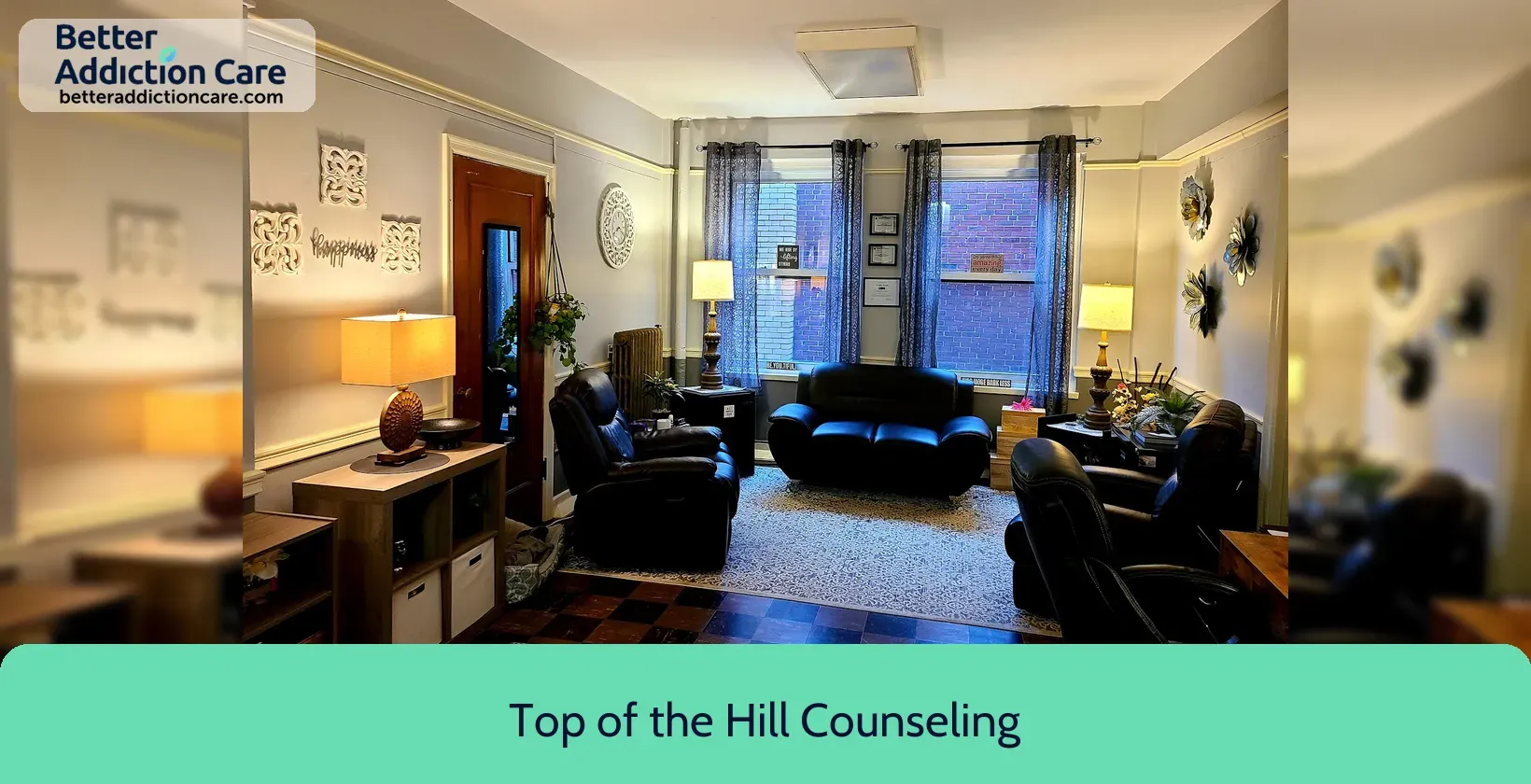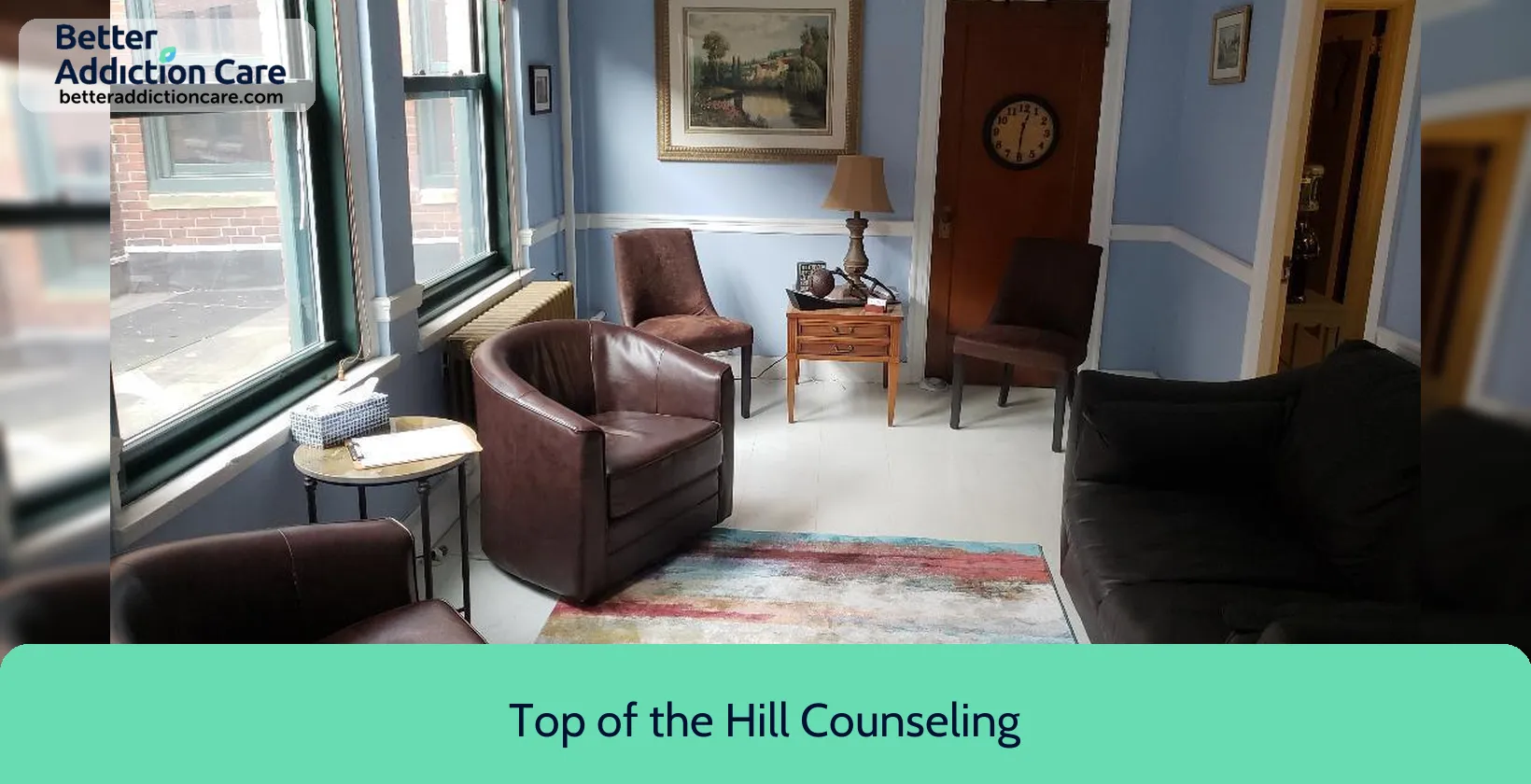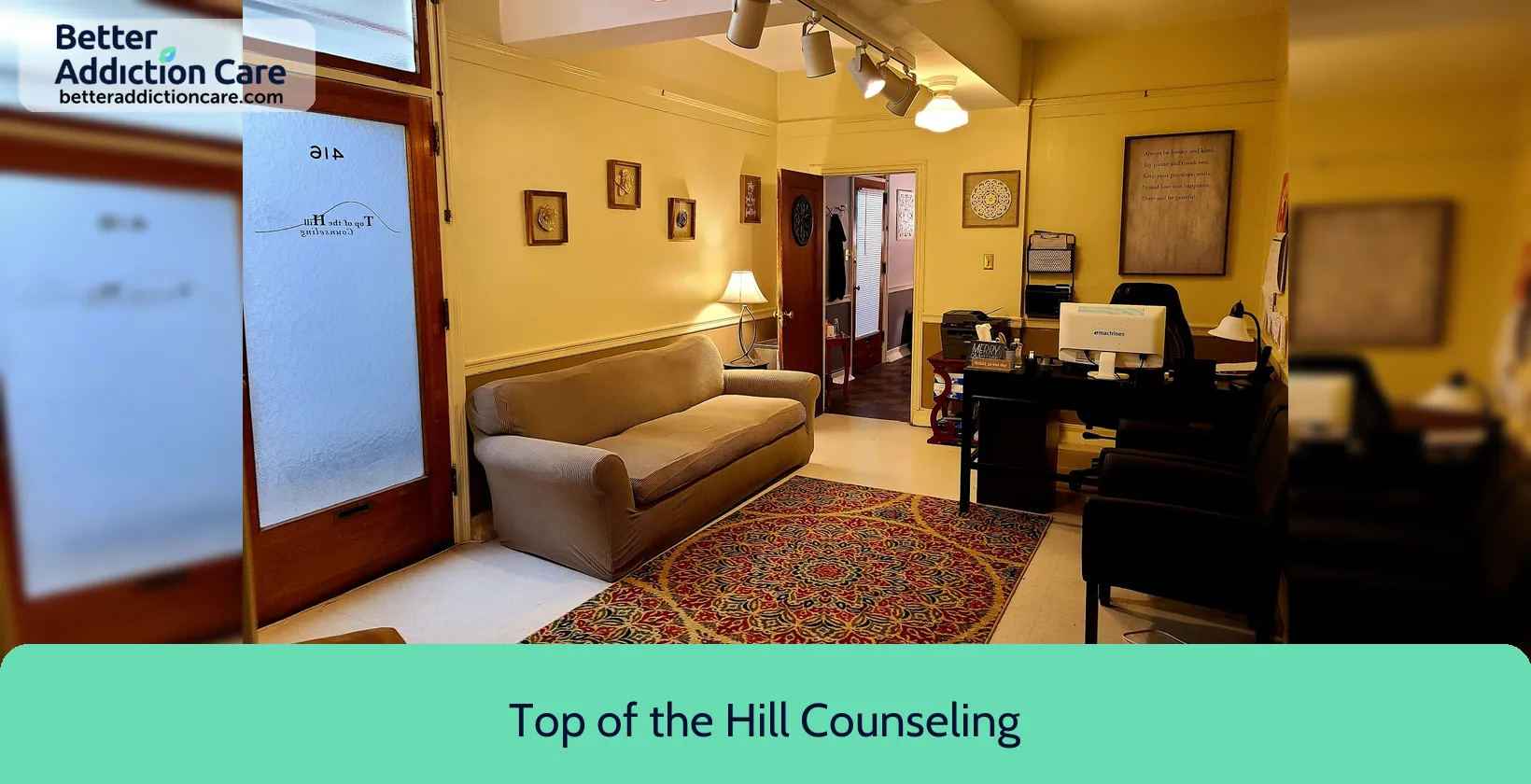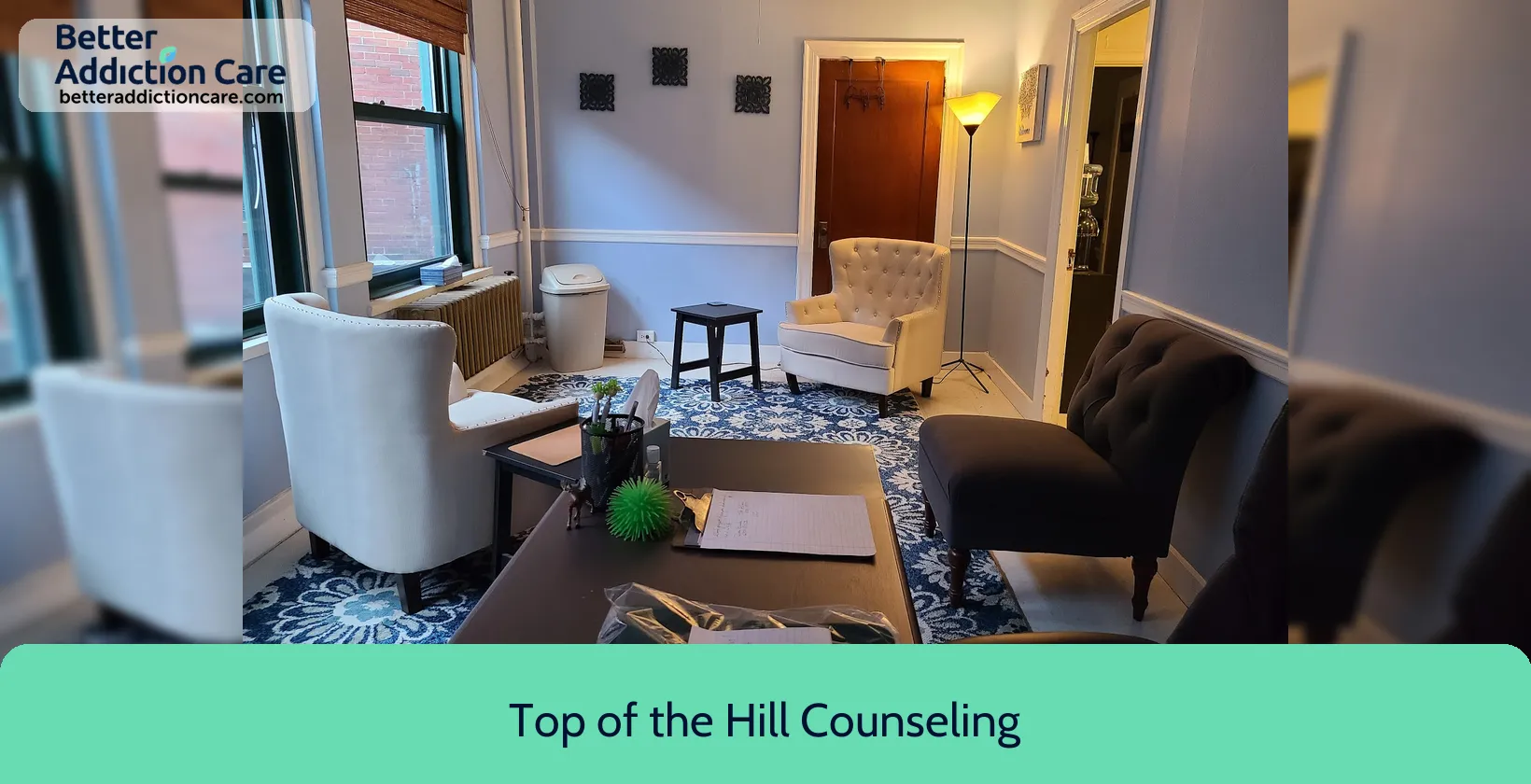Top of the Hill Counseling
Overview
Top of the Hill Counseling is a substance abuse treatment center for people seeking treatment near Cumberland County. As part of their treatment modalities for recovery, Top of the Hill Counseling provides cognitive behavioral therapy, telemedicine/telehealth therapy, and substance use disorder counseling during treatment. Top of the Hill Counseling is located in Portland, Maine, accepting cash or self-payment for treatment.
Top of the Hill Counseling at a Glance
Payment Options
- Cash or self-payment
- Medicaid
- State-financed health insurance plan other than Medicaid
- Private health insurance
Assessments
- Screening for tobacco use
- Comprehensive substance use assessment
- Interim services for clients
- Screening for mental disorders
- Screening for substance use
Age Groups
- Young adults
- Adults
Ancillary Services
- Specially designed program for DUI/DWI clients
Highlights About Top of the Hill Counseling
6.68/10
With an overall rating of 6.68/10, this facility has following balanced range of services. Alcohol Rehabilitation: 8.00/10, Drug Rehab and Detox: 6.00/10, Insurance and Payments: 6.00/10, Treatment Options: 6.73/10.-
Alcohol Rehabilitation 8.00
-
Treatment Options 6.73
-
Drug Rehab and Detox 6.00
-
Insurance and Payments 6.00
Treatment At Top of the Hill Counseling
Treatment Conditions
- Alcoholism
- Substance use treatment
Care Levels
- Outpatient
- Regular outpatient treatment
- Aftercare
Treatment Modalities
- Cognitive behavioral therapy
- Telemedicine/telehealth therapy
- Substance use disorder counseling
- 12-step facilitation
- Motivational interviewing
Ancillary Services
Additional Services
- Pharmacotherapies administered during treatment
- Discharge Planning
- Drug and alcohol oral fluid testing
Contact Information
Read our Most Recent Article About Drug Addiction
DISCLAIMER: The facility name, logo and brand are the property and registered trademarks of Top of the Hill Counseling, and are being used for identification and informational purposes only. Use of these names, logos and brands shall not imply endorsement. BetterAddictionCare.com is not affiliated with or sponsored by Top of the Hill Counseling.












